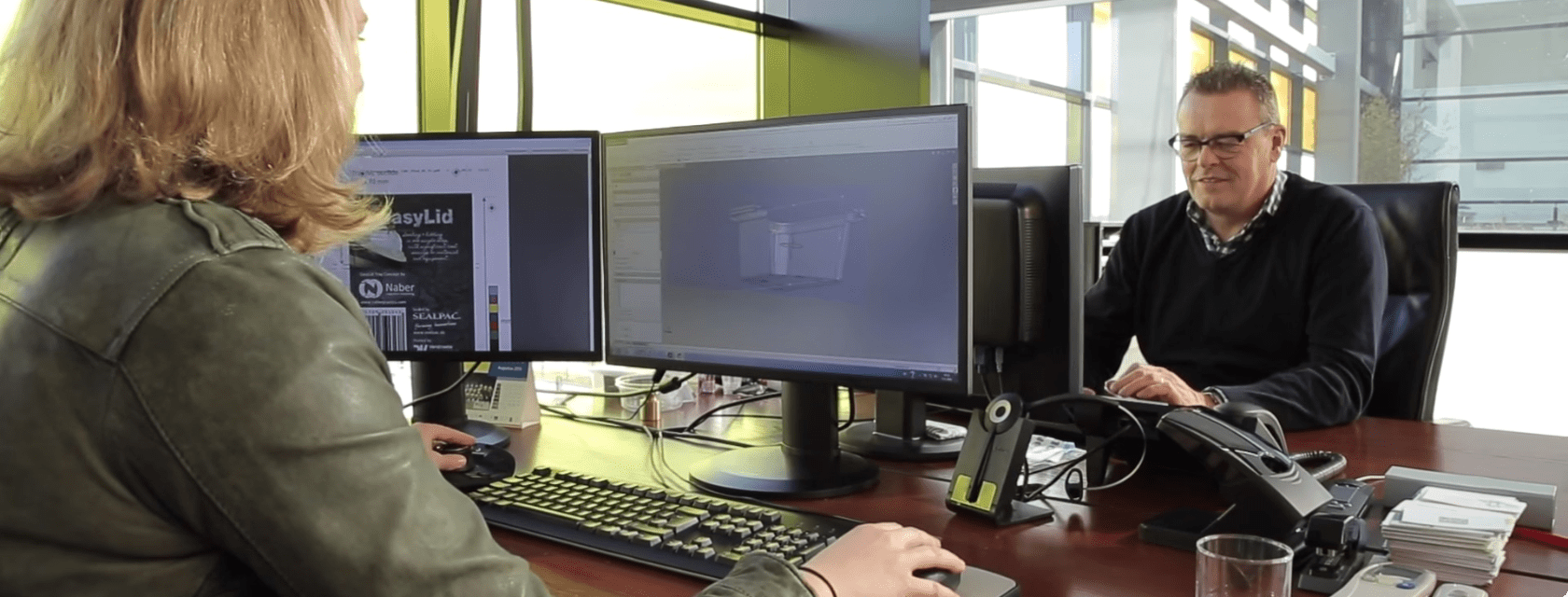
Naber Plastics B.V. has its own product development department. Continuously looking for innovative solutions for both existing and new products. Over the years, we have been able to realise a large number of (patented) product improvements. We, as the product development department, prefer to discuss the development of new products with the client himself. We don’t believe in copying existing products and always strive for improvements in the area of functionality, saving on raw materials, production time and energy.

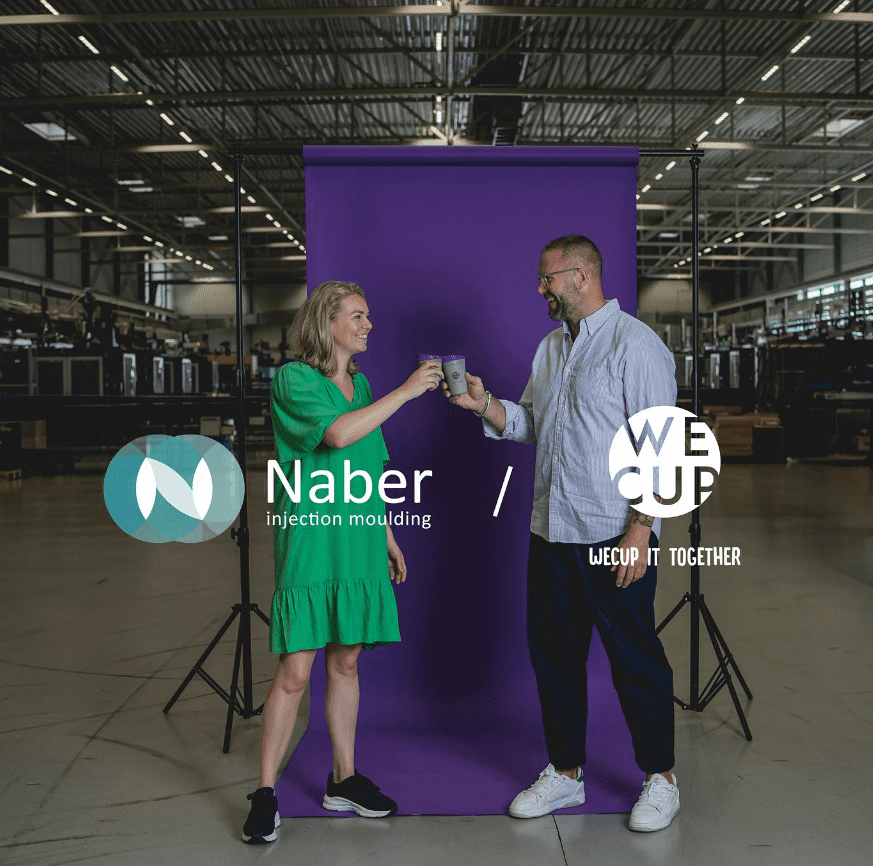
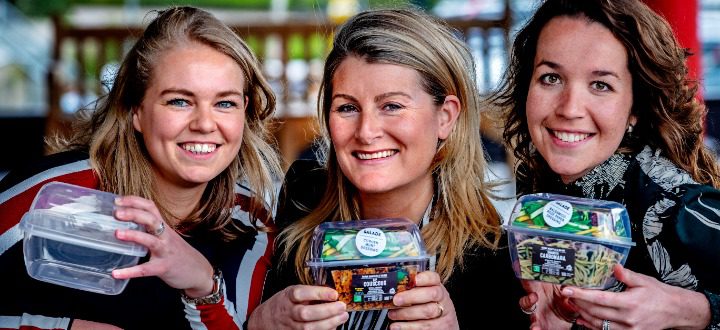
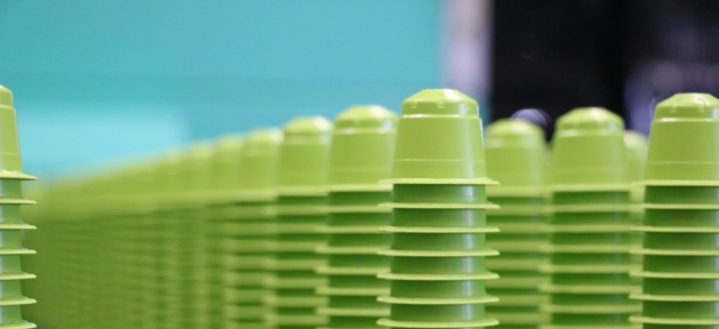
Maximum control during production due to unique MESS system
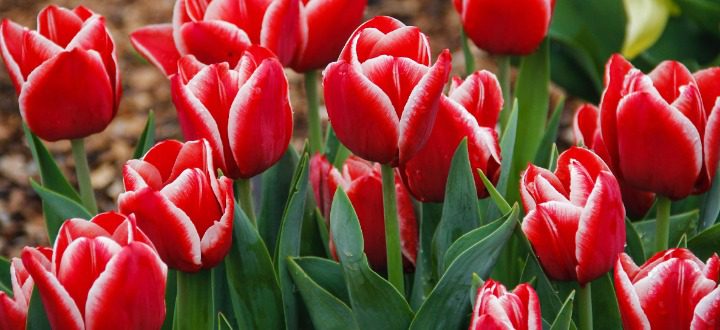


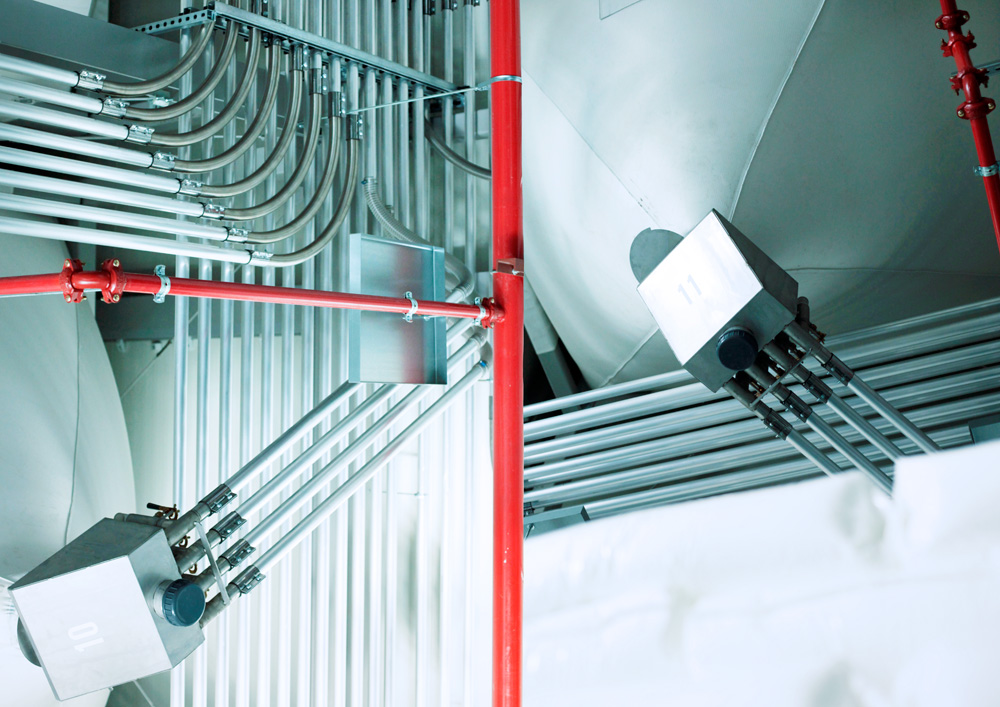
When we fitted out our premises on the Haven VII Business Park in Waalwijk, we applied the most low-energy solution to every energy-consuming operation. For instance, our cooling system consists of a combination of dry coolers and chillers with an exceptionally high C.O.P, the Coefficient of Performance. Our pipe system is over-dimensioned to minimise loss of pressure. At the same time, we use communicating vessels so that a vacuum is created in the return pipes. We use the residual heat to heat our offices and the warehouse.
The compressed air unit is frequency-regulated and is fitted with a heavy-duty loop to prevent pressure loss. The granulate silos are hung at the same height as the pipe transport system, so transporting the granulate uses less power.
We put a lot of thought into the power grid’s infrastructure. The power readings are set at 10KV. 10KV is transported on our own grounds. The transformers have been installed near the users and then 380V is transported along a voltage rail to reduce loss during transport to an absolute minimum. For years, whenever we invested in new injection-moulding machinery, the low-energy aspect has been a major, decisive factor.
Due to our investments, we have made real progress in cutting back on our energy usage. We believe that corporate sustainability is the future and that, in the end, it will produce a lower price for the product.

As well as all the measures we have introduced to our infrastructure to reduce our power usage to a minimum, we have also installed solar panels on our roof – these 6,690 panels create the largest glass-glass solar panel project in Europe so far. Its entire yield is used for our own operations: not a single kilowatt hour goes back into the grid. Annually, we generate 2,500,000 kWh of electricity which means that our manufacturing operations are CO2 neutral on sunny days. Let the sun shine in!

The reuse of raw materials is very important. Naber strives for a circular economy and uses recycled plastic whenever possible. At the moment 80% of our production is manufactured from recycled material. 40% of this is post-industrial and 60% is post-consumer.
Besides this, we put our focus on sustainability during the design process. We advise our clients to go for the most sustainable choice. This advice depends on the use of the product. For example:
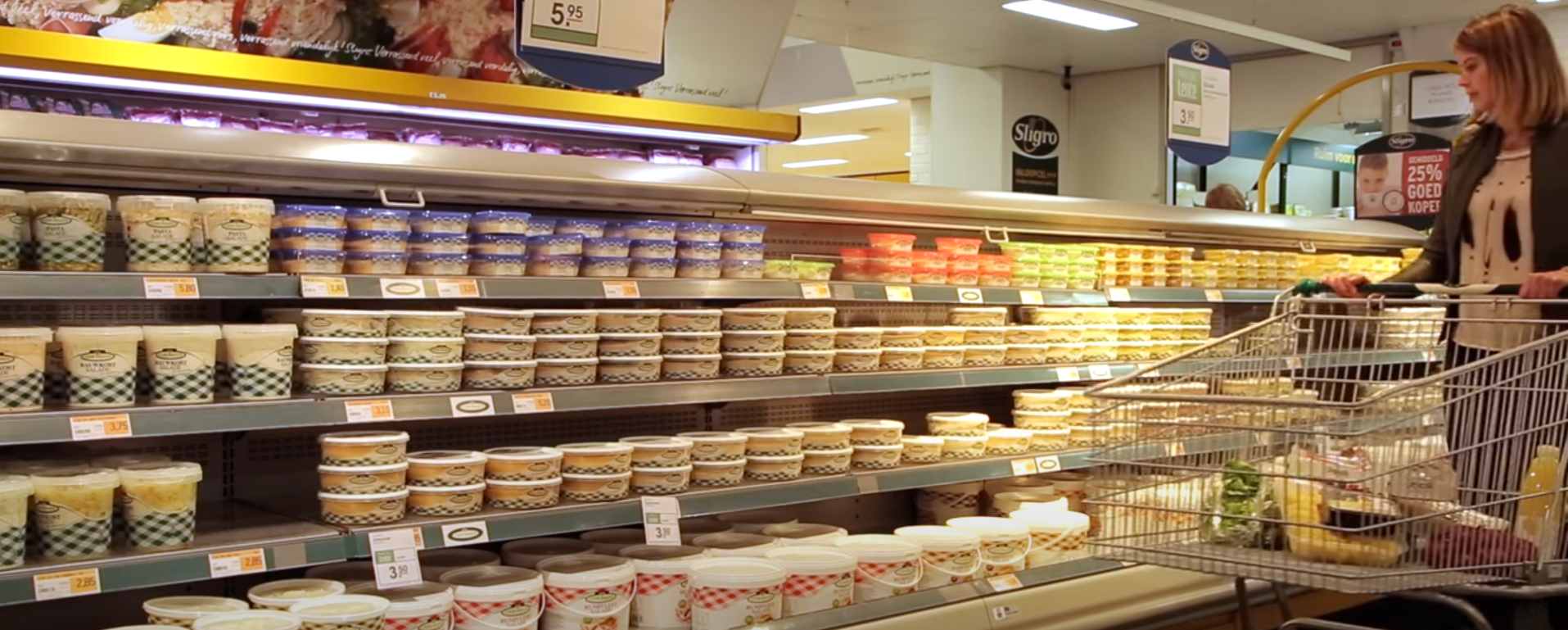
Plastic is a topic of discussion in our society. But is this justified?
Packaging has an impact on the environment: raw materials and energy are needed to make them and they give us waste. But packaging is often also very useful. Food has a longer shelf life because of this packaging and will be less damaged during transportation and storage. Because of this, we are throwing out less food and also need to buy less new food. The environmental impact of throwing out food is bigger than the impact of its packaging.
How does plastic packaging compare to alternative packaging, like paper, tin or glass in the area of sustainability?
Much research has been done on this topic. Plastic appears to be the best option for many applications when you look at its CO-2 footprint.
This is because plastic is a strong material with a low density. Because of this quality, we can manufacture plastic products very thin, which results in much lighter packaging then when made out of alternative raw materials. This means a low quantity of raw material per packaging and is also very efficient in the logistic area.
But what about the plastic soup?
Plastic in the environment is not okay, we can be brief about that. But can we blame the plastic? Or does the problem lie with people: the person who dumps it in nature? Plastic is a raw material. Like cardboard, tin or glass are also raw materials. Worldwide we need to be careful with these materials and collect them properly.